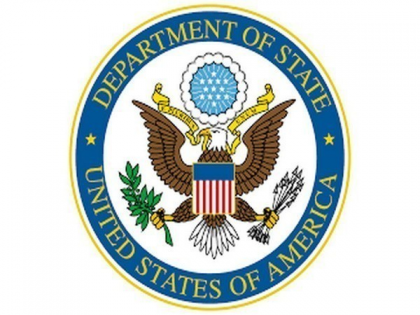India a 'vibrant democracy', discussion going on over CAA: State Dept official
By ANI | Published: December 19, 2019 10:13 AM2019-12-19T10:13:43+5:302019-12-19T10:30:02+5:30
Calling India a 'vibrant democracy', a senior US State Department official on Wednesday declined to comment about Washington's stance on the Citizenship Amendment Act (CAA), saying there is already a discussion going on in India over the legislation.

India a 'vibrant democracy', discussion going on over CAA: State Dept official
Calling India a 'vibrant democracy', a senior US State Department official on Wednesday declined to comment about Washington's stance on the Citizenship Amendment Act (CAA), saying there is already a discussion going on in India over the legislation.
The official reiterated Secretary of State Michael Pompeo's comments during the press conference following the 2+2 India-US ministerial dialogue on Wednesday.
"I think Secretary Pompeo was very clear that we care deeply about the rights of minorities and the need to protect religious freedom. It's an integral part of our diplomacy. You see it in the reports we draft every year and the ministerial conference we held the last two years running on international religious freedom, so obviously this is a core issue for this administration and for this Secretary," the official said during a special briefing after the 2+2 dialogue.
"The Secretary also noted that India is a vibrant democracy. There is a debate going on in India over this very legislation (Citizenship Amendment Act). It's legislation that will be reviewed by the courts. It's being protested by political parties. It's being debated in the media. All of these institutions exist in a democratic India and so we respect that process," the official asserted.
The senior State Department official, however, cited Sam Brownback, Ambassador at Large for International Religious Freedom, who tweeted last week about the US' concerns about the "implications" of the citizenship law, after Parliament had cleared the Citizenship (Amendment) Bill, 2019.
"One of #India's great strengths is its Constitution. As a fellow democracy, we respect India's institutions, but are concerned about the implications of the #CABBill. We hope the government will abide by its constitutional commitments, including on religious freedom," Brownback had tweeted on December 13.
In response, the official said, "Well, I think as Ambassador Brownback has already commented, we have concerns about religious criteria. But again, this is a piece of legislation now, an act, and that is continuing to be reviewed within the Indian system."
The CAA seeks to grant Indian citizenship to refugees from Hindu, Christian, Sikh, Buddhist and Parsi communities fleeing religious persecution from Pakistan, Afghstan and Bangladesh, and who entered India on or before December 31, 2014.
Asked whether Kashmir was raised during the 2+2 dialogue, the senior State Department official asserted that the US voiced their concerns about the roadmap in the region, but outlined that the India-US relationship does not "deal in ultimatums".
"You know that we have discussed our concern over what the roadmap is in Kashmir to a return to economic and political normalcy, and what has concerned us about the actions in Kashmir are the prolonged detentions of political leaders as well as other residents of the Valley, in addition to the restrictions that continue to exist on cell phone coverage and internet," the official said.
"This is not a relationship where we deal in ultimatums. Again, I think this is a country, a democracy where these policies are being voted on, they're being debated, they're being reviewed by a judiciary and so I would not use that terminology," the official added.
In August, the Parliament had approved a resolution abrogating Article 370 to Jammu and Kashmir, under which the region enjoyed special provisions. Also, a Bill was cleared in the House bifurcating Jammu and Kashmir into two Union Territories (UTs) -- Jammu and Kashmir and Ladakh. These UTs came into existence on October 31.
Several countries have backed India's constitutional decisions on Kashmir, saying it is entirely the internal affairs of the country.
( With inputs from ANI )
Open in app